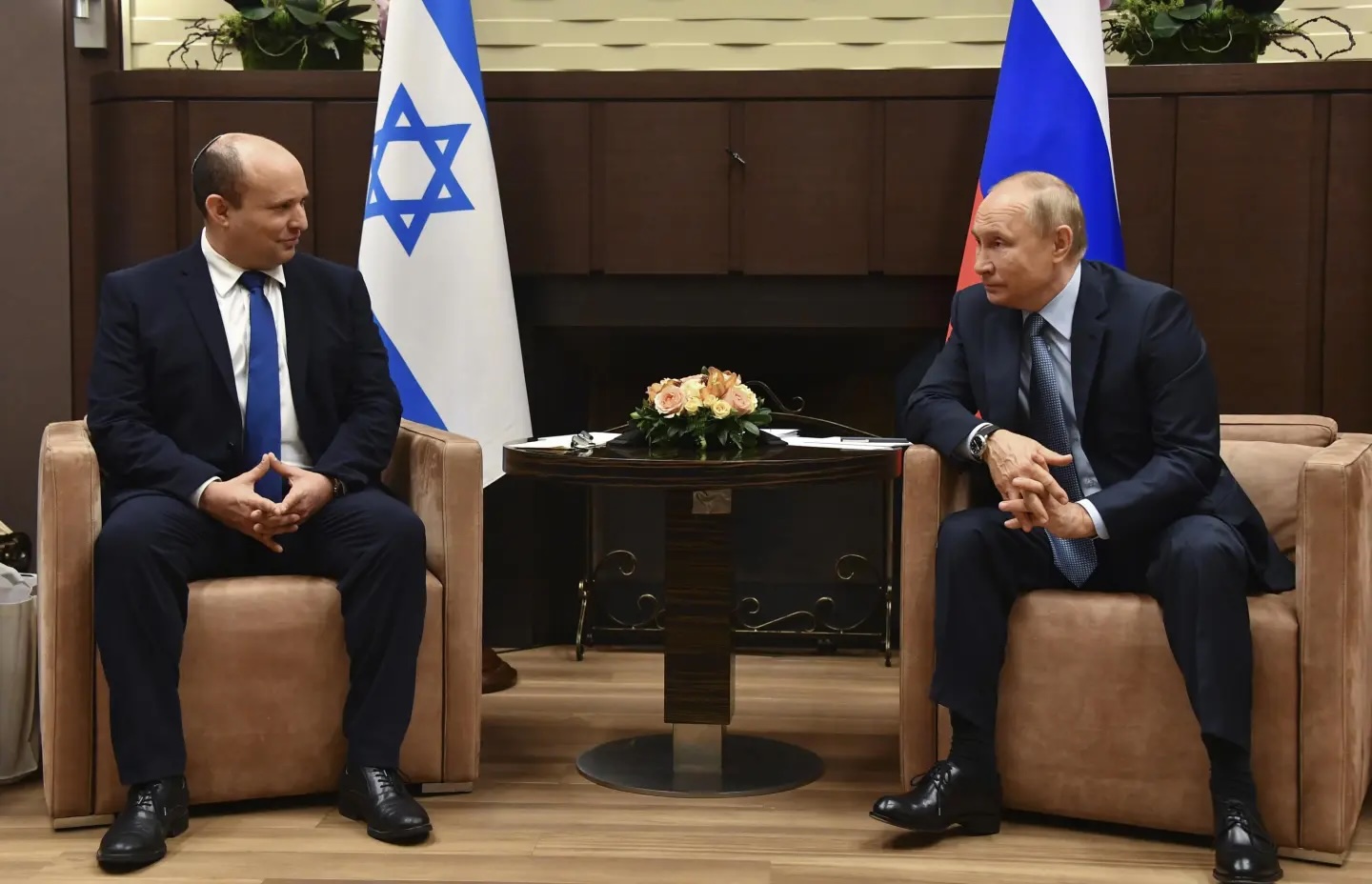Could Naftali Bennett run the Ukraine negotiations?
8 February 2025
By Edward M. Druce

Photo: Evgeny Biyatov
Reports are swirling of split opinion in the Trump administration on best next steps in Ukraine.
NBC on Wednesday reported:
Split in the Trump administration
Trump’s advisers and Cabinet members are split over how much pressure to bring to bear, with National Security Adviser Mike Waltz and Ukraine Envoy Keith Kellogg wanting to use American leverage to prod Putin to stand down.
And:
Others favor cutting back the billions of dollars in assistance the US gave to Ukraine in the Biden administration as a way of forcing a swift end to the conflict. Critics of that approach say it would effectively disarm Ukraine and thus amount to a capitulation to Russia.
On the side of putting further sanctions on Russia, Lt. General Kellogg (Presidential Envoy to Ukraine) told Fox News last Friday:
Let’s look at the recent sanctions. If you go on a gradient of 1–10, I think when it comes to the sanctions, we’re probably only at a six. But the enforcement is only at about a three... These are the kinds of things we’re looking at, talking about. How do we apply pressure not only to the Russians – and incentives as well – but also to the Ukrainians?
Is there a figure who could harmonize both sides (of the US team), and bring out the best of both?
Here’s my personal pitch… The figure to do this is Israeli.
• He’s a very successful businessperson – and co-founded a company that was acquired for $145m. He understands negotiation in an Art of the Deal-like way.
• He’s a lethal former Special Forces soldier for the IDF/Maglan, winning awards for personally taking out Hezbollah terrorists. He would command respect from unruly militias – a key failure of the 2014 Minsk accords.
• His parents = American (emigrated to Israel from San Francisco). He’s America-aligned, yet was accepted by President Putin as an intermediary.
• He knows Presidents Putin and Zelensky already, having personally led talks directly between the two in March 2022. Here’s the (greatly under-reported at the time) tale: https://x.com/EdwardMDruce/status/1728342410948759600
And he already knows where the respective Presidents’ points of concession are – that just need updating for the present day.
• The act of him leading negotiations would help rebuild Israel’s relations with Russia (and sideline Iran) – which is very much needed right now: https://www.aljazeera.com/news/2025/1/17/russia-and-iran-presidents-sign-partnership-treaty-in-moscow.
• His leading talks for several months would briefly take him away from being a presence looming over Israeli domestic politics, which PM Netanyahu – Naftali arguably being his most formidable rival – might actually welcome. President Trump, at least right now, seems to want PM Netanyahu staying put. (Israeli politics are volatile and unpredictable, but there’s no scheduled election until late 2026.)
• He’s already spent months studying the history of eastern Ukraine (in 2022).
• With the ceasefire in Gaza now in place, Naftali, for the first time in 16 months, might be able to expand his sphere of concern beyond Israel. (It’s implausible he could have been considered for this role as recently as three weeks ago.)
• Is 52 and very energetic.
• Highly respected by all parties.
• Speaks perfect English.
• Has already gone out on a limb taking the personal/public risk of trying to bring about a negotiated outcome between Presidents Putin and Zelensky in 2022. He has diplomatic courage.
Lt. General Kellogg, of course, ought to officially head the US delegation. But speaking publicly about yet harsher sanctions, he’s fulfilling the role of hard negotiator, not a diplomat. A deal of this scale, and success with Russia, might require both.
Would Naftali not be an ideal, US-nominated mediator?
From a 2021 Axios profile:
A source familiar with Bennett from his Cyota days [the tech company he co-founded in 1999] says that he was more of an execution guy than a vision guy, and he was adept at getting along with a team that had very different views (including political ones).
Two decades having passed since then (Cyota was acquired in 2005), Naftali could surely knock a few fresh Cabinet members to attention.
In 2022, Naftali’s diplomacy was undermined by the Bucha massacre – and tenuous British and American support (if not actual subversion from the Biden administration and Boris Johnson).
Could Naftali become a channel of “1.5 track” diplomacy for the new US team, to test ideas with the Russian President, and vice versa?
This would require delicate handling with PM Netanyahu. But Naftali’s 2022 role wasn’t preconditioned simply on him being Israel’s 13th Prime Minister. It was predicated on him as a person – the right figure, for all the above reasons.
If Naftali had the aegis of President Trump today…
*
Edward M. Druce is a former 10 Downing Street Special Advisor, having worked with Dominic Cummings, then Chief Advisor to the Prime Minister, 2020–21
Enjoy this article? We’re a small team of twenty- and early thirty-somethings who want to take on Foreign Affairs and do diplomatic journalism better. Read about this publication’s founding mission here. And if you like what we’re doing, please consider subscribing (free) for updates.